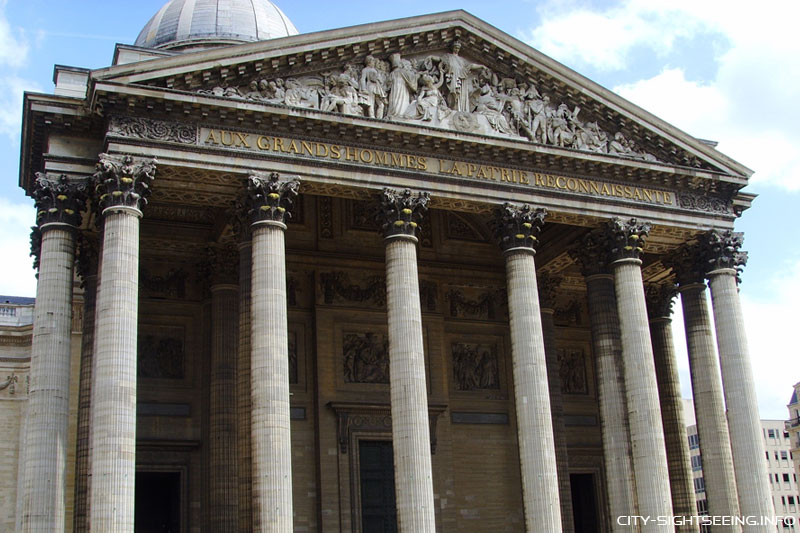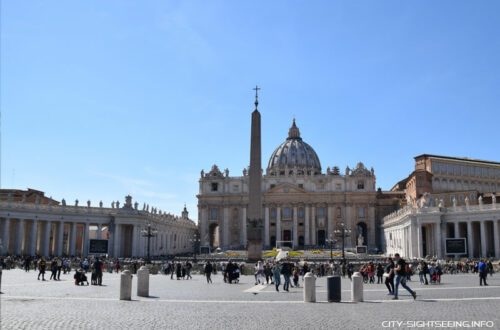Panthéon in Paris

The Panthéon in Paris, majestically located on the hill of Sainte-Geneviève in the 5th arrondissement, is much more than just an architectural masterpiece. It embodies the rich history and culture of France, from its original role as a church to becoming a national mausoleum where significant figures are honored. Today, it is one of the key landmarks of Paris and a symbol of the city. With a fascinating architecture skillfully combining ancient and Gothic elements, and an impressive list of personalities including Voltaire, Marie Curie, and Victor Hugo, the Panthéon is a living testament to France’s influential past and present. In this article, we will delve into the history and significance of this iconic Parisian landmark.
Table of Contents
Panthéon in Paris
The Panthéon in Paris is an impressive national memorial and one of the city’s most significant architectural landmarks. It is situated on the hill of Sainte-Geneviève in the 5th arrondissement and has a rich history closely linked to French culture, history, and science.
Originally planned as a church for the Abbey of Sainte-Geneviève, King Louis XV commissioned architect Jacques-Germain Soufflot for its construction, which took place between 1764 and 1790. The Panthéon impresses with its neoclassical architecture on the exterior, while the interior features Gothic elements such as slender columns and ribbed vaults. This contrast between the ancient exterior and Gothic interior design makes the building unique.
During the French Revolution, the Panthéon was declared a national mausoleum by the revolutionaries, dedicated to significant personalities of French history. Monumental monuments and tombs inside the building honor figures like Voltaire, Victor Hugo, Marie Curie, and many others who made outstanding contributions to French culture and society.
Notably, the Panthéon has also included women honored for their own achievements. These include Geneviève de Gaulle-Anthonioz, Germaine Tillion, Simone Veil, and Josephine Baker. Recognizing women in such a prominent national memorial is a significant step towards equality.
In addition to its historical importance, the Panthéon also played a role in the history of science. It was here that physicist Léon Foucault achieved the empirical demonstration of the Earth’s rotation in 1851 with his famous Foucault pendulum.
Thus, the Panthéon is not only an architectural gem but also a place that encapsulates the history, culture, and science of France. It is a site of remembrance and recognition for those who shaped the country and an inspiration for visitors from around the world.
Address
Pl. du Panthéon, 75005 Paris, France
Opening Hours
Monday to Sunday: 10:00 am – 6:30 pm (last entry at 6:00 pm)
The opening hours of the Panthéon in Paris may vary, so it is advisable to check the current times before your visit. Please note that opening hours may differ on holidays or during special events.
Tickets
More Tickets & Tours






